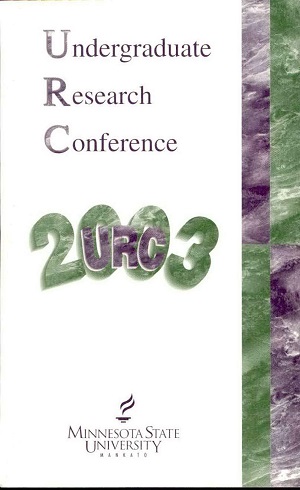Profanity and You: Exploring the Acceptability of Swearing in Today's Culture
Location
CSU
Student's Major
Communication Studies
Student's College
Social and Behavioral Sciences
Mentor's Name
Lisa Perry
Mentor's Department
Communication Studies
Mentor's College
Arts and Humanities
Description
In 1972, a list was created; George Carlin's list of "Seven Dirty Words You Can't Say on Television". Part of the humor in Carlin's performance arose from the nature of censorship and the shock of obscenity in a public venue. The overall shock value of swearing has depleted as most swear words have become acceptable and commonplace. The Toronto Sun of March 20,2002 reported; "During four weeks of viewing one prime time hour in 1989, the Parents Television Council counted 108 uses of hell and damn. By 1999 there were 518." This is a minor example of the rise of profanity in one form of communication—the media. Through the use of humor, this research project will look at why swearing has become so acceptable in American society and the repercussions this poses.
Profanity and You: Exploring the Acceptability of Swearing in Today's Culture
CSU
In 1972, a list was created; George Carlin's list of "Seven Dirty Words You Can't Say on Television". Part of the humor in Carlin's performance arose from the nature of censorship and the shock of obscenity in a public venue. The overall shock value of swearing has depleted as most swear words have become acceptable and commonplace. The Toronto Sun of March 20,2002 reported; "During four weeks of viewing one prime time hour in 1989, the Parents Television Council counted 108 uses of hell and damn. By 1999 there were 518." This is a minor example of the rise of profanity in one form of communication—the media. Through the use of humor, this research project will look at why swearing has become so acceptable in American society and the repercussions this poses.




